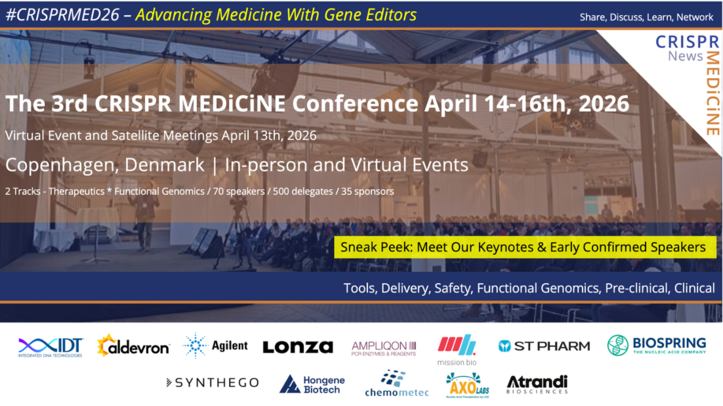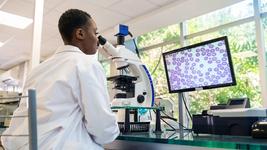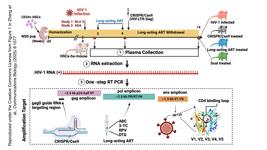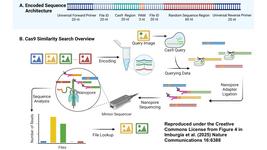CMN Weekly (5 July 2024) - Your Weekly CRISPR Medicine News
Top picks
CSHL to host first person cured of sickle cell. In 2019, Victoria Gray became the first patient to be cured using CRISPR technology when she received CASGEVY for sickle cell disease as part of a clinical trial. On 17th July, Cold Spring Harbour Laboratory will host Victoria, where she will speak about her experience and reflect on her personal journey living with the disease. She’ll also talk about treatment challenges and the newfound hope for patients with genetic disorders. This event is timely given that Victoria celebrated 5 years free of sickle cell disease this week (see her LinkedIn post for her words on this).
Research
- Anti-CRISPR proteins that inhibit the activity of CRISPR-Cas systems are among the largest group of protein inhibitors described to date. In a study published in Nature yesterday, researchers in Canada and China report on the characterisation of one such anti-CRISPR protein, AcrIF25. The team demonstrates that AcrIF25 inhibits the type I-F CRISPR-Cas system by pulling apart the fully assembled effector complex. They show that AcrIF25 binds the predominant CRISPR RNA-binding components of the effector complex, which is made up of six Cas7 subunits, and strips them from the RNA. They propose AcrIF25 as the first example of a protein that disassembles a large and stable macromolecular complex in the absence of an external energy source, and present it as a paradigm for macromolecular complex inhibitors with potential in biotech applications.
- In an article published yesterday in Nature Methods, scientists in China and the United States present CRISPRdelight, a DNA-labelling system based on endonuclease-deficient CRISPR–Cas12a (dCas12a), with an engineered CRISPR array to track DNA location and motion. They demonstrate that CRISPRdelight enables robust imaging of all examined 12 non-repetitive genomic loci in different cell lines, and applied the method to track dyamics and regulation of the CCAT1 and HSPH1 loci.
- In an article published in Nature Cell Biology, scientists in China share the findings of a study to target specific DNA G-quadruplexes using CRISPR-guided G-quadruplex-binding proteins and ligands. Using G4-stabilising protein/ligand in conjunction with CRISPR to selectively facilitate single or multiple targeted G4 folding within specific genomic loci, they show that fusion of nucleolin with a catalytically-dead Cas9 can specifically stabilise G4s in the promoter of the oncogene MYC and muscle-associated gene Itga7 as well as telomere G4s, leading to cell proliferation arrest, inhibition of myoblast differentiation and cell senescence, respectively. The authors suggest that their study will help to improve the understanding of G4 functions and therapeutic interventions.
- Using a CRISPR/Cas9 screen to investigate the 2-cell-like cells (2CLCs) phenotype in mouse embryonic stem cells (mESCs), researchers at various institutions in China identified ten regulators that play a pivotal role in determining cell fate during this transition. They uncovered Mdm2 as a significant negative regulator of 2CLCs, whereby perturbation of Mdm2 resulted in a higher proportion of 2CLCs. Read the full findings in an article published this week in Communications Biology.
Industry
- Allogene Therapeutics announced earlier this week that it has activated three community cancer centres as the first clinical sites for a pivotal Phase 2 trial of cema-cel. The trial, known as ALPHA3, will evaluate Cemacabtagene Ansegedleucel (cema-cel, formerly known as ALLO-501A) as a first line (1L) consolidation treatment for patients with large B-cell lymphoma (LBCL). ALLO-501A is a TALEN-edited next-generation anti-CD19 AlloCAR T therapeutic candidate made from healthy donor cells. Read more in our brief update published on Tuesday.
- At the United Mitochondrial Disease Foundation’s Mitochondrial Medicine 2024 Conference held last week in Ohio, Precision Biosciences presented data supporting the advancement of its PBGENE-PMM programme towards an IND and/or CTA application in 2025. PBGENE-PMM is a meganuclease-based therapeutic candidate designed to eliminate mutant mitochondrial DNA associated with m.3243 mitochondrial disease. Pre-clinical studies show that this strategy results in normal functioning wild-type mitochondrial DNA intact to repopulate the cell, resulting in a shift in heteroplasmy and improvement in overall mitochondrial function. Read more in the official press release here.
Reviews
Engineering strategies to safely drive CAR T-cells into the future. In this review article, scientists at Celyad Oncology (Belgium) discuss the viral and non-viral approaches used to produce CAR T-cells, before focusing on on gene editing and non-gene editing T-cell engineering, with emphasis on advantages, limitations, and safety of these approaches. They finish with an analysis of the various gene deployment and genomic-engineering combinations available and highlight strategies with a superior safety profile for the production of next-generation CAR T-cell therapies.
Commentary
In a commentary published this week in the Lancet Haematology, Akshay Sharma (St Jude Children's Research Hospital) and Tami D John (Stanford University) discuss appraoches to breaking the cost and infrastructure barriers to equitable access to gene therapies for sickle cell disease.
News from CRISPR Medicine News
- On Monday, we highlighted a recent study by Korean researchers who have developed programmable conditional guide RNAs for precise control of endogenous gene expression using the CRISPR-Cas system. The new system, which has been demonstrated to work in E. coli, might have significant implications for human clinical applications. Read more about that study, which was published in Nucleic Acids Research last week, here.
To get more CRISPR Medicine News delivered to your inbox, sign up to the free weekly CMN Newsletter here.
Tags
ArticleMissing linksNewsCMN WeeklyAllogene Therapeutics, Inc.Precision BioSciences, Inc.
CLINICAL TRIALS
Sponsors:
Guangzhou Women and Children's Medical Center
Sponsors:
AMERICAN ORGAN TRANSPLANT AND CANCER RESEARCH INSTITUTE LLC
Sponsors:
Nationwide Children's Hospital







